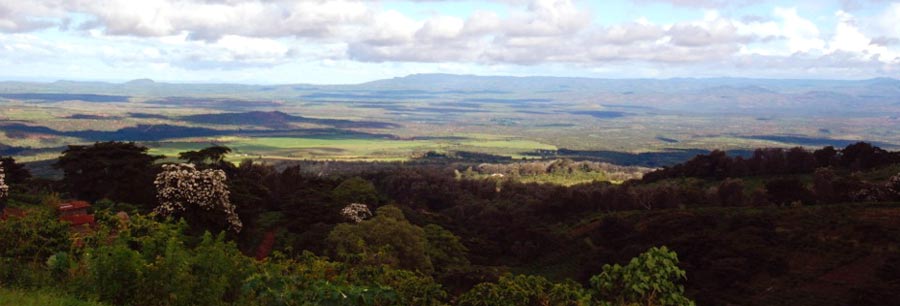
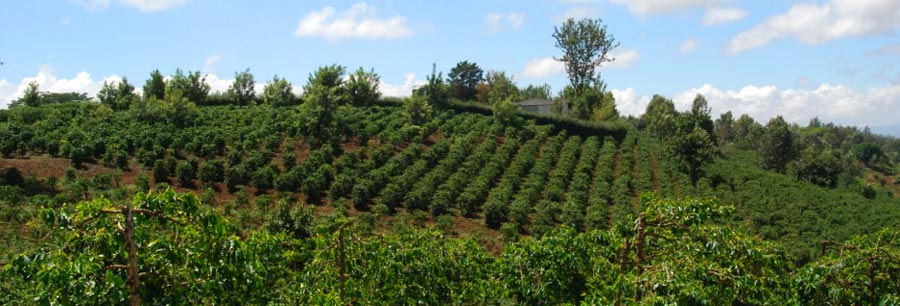
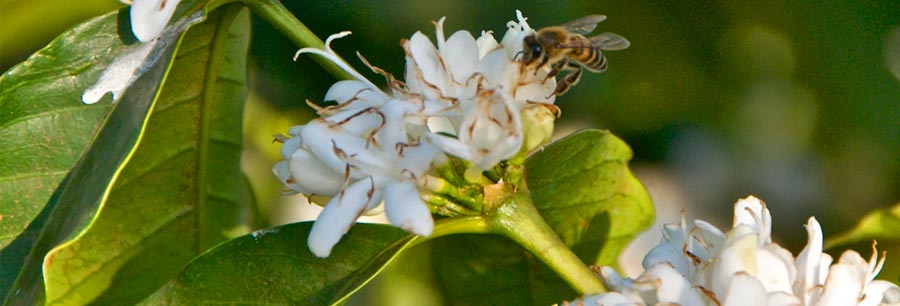
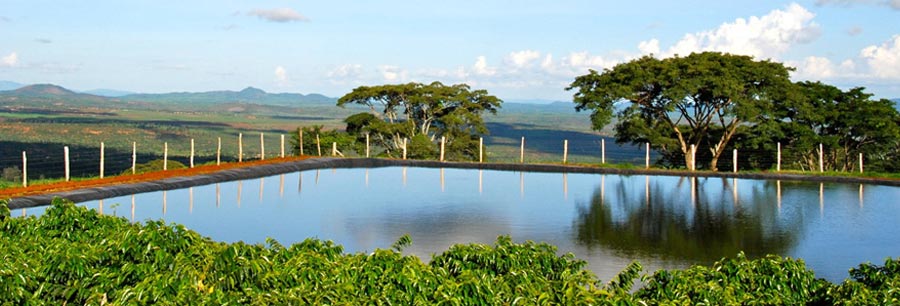
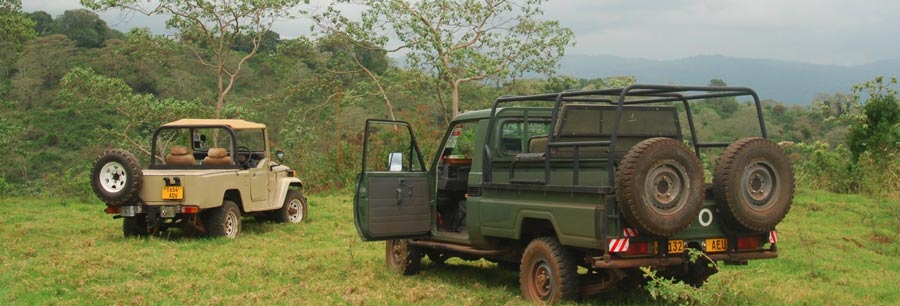





Our two coffee farms - Ascona and Edelweiss - are located in Oldeani, Karatu on the rim of Ngorongoro Crater. The first known occupiers on the farms were German settlers who, around 1900, lived in Buffalo Ridge house on Ascona farm. Between 1926 and 1931 they planted coffee on Ascona. During the second world war, the German settlers were interned and the farms were taken over by the British Administration. Mr. BN Vohora, the founder of Coffee Exporters, oversaw operations on the farms in the area for the British Administration. After the war, the farms were run by British farmers until they were sold to an American multinational in the 1950s. In the 1969, Mr. BN Vohora bought Ascona and Edelweiss farms. Since then three generations of our family have nurtured and expanded these farms to develop truly exceptional coffee.
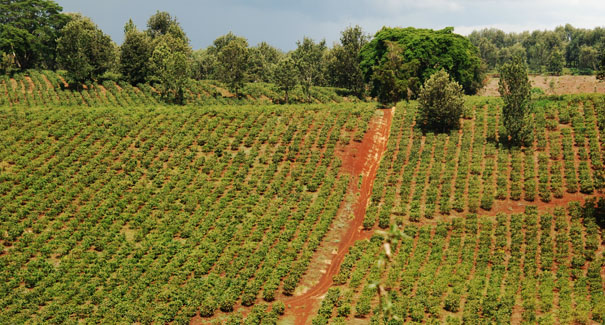
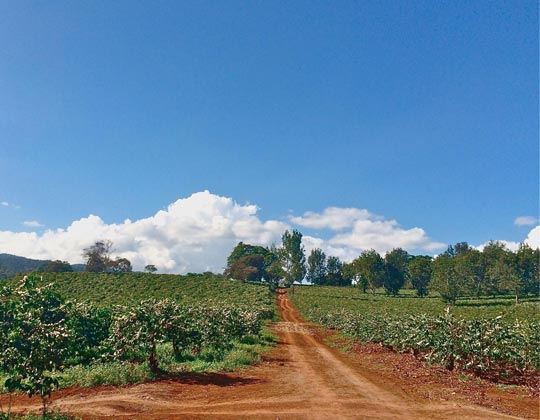
The farms are located high up on the edge of the renowned World Heritage site, the Ngorongoro Conservation area. Both farms border the Ngorongoro forest which comprises entirely indigenous trees and bush and is home to elephants, buffalos, lions and smaller antelope. To protect the natural environment, we maintain bush land areas for the wildlife and tree cover throughout the farms. We ensure that our farming has minimal impact on the incredible wildlife and ecology that surrounds and lives alongside us.
All our coffees are grown at an altitude of between 1600 and 1850 metres. This makes our farms amongst the highest in Tanzania. The coffee is rain fed due to scarcity of available water. The extreme variations in the farms' topography, the different varieties of coffee grown and the abundance of micro-climates all give our coffee a unique and complex cupping profile.
All through the year we prepare to harvest the coffee. Activities range from maintaining machinery to weeding and pruning the coffee trees.
From November until February-depending on the rains-the coffee trees flower. In June we start to harvest the coffee, although sometimes, depending on the size and ripening of the crop, we can continue picking coffee until January.
All our coffee is picked by hand. At the beginning of the season we train our employees to pick the red cherries at optimal ripeness.
We are extremely quality conscious and implement rigorous quality control procedures to ensure that any under and over-ripe cherries are removed before pulping.
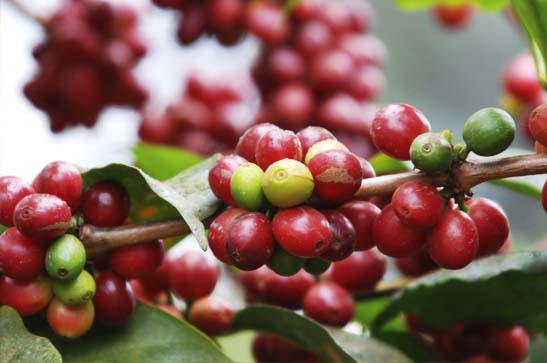
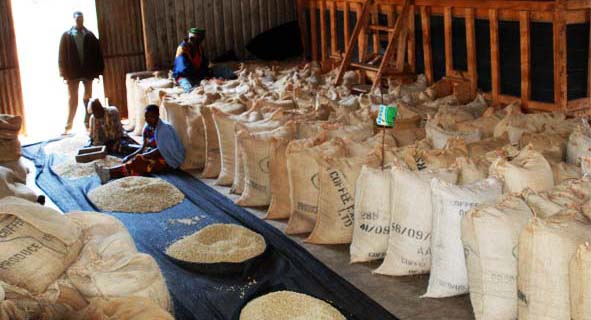
Each farm has its own wet process mill. The freshly picked cherries are brought directly to the pulping and washing station where they are immediately pulped and fermented for up to 36 hours. After fermentation, the coffees are washed and dried on African raised beds. We initially dry our coffee under shade so as not to shock the bean during drying. The coffee remains on the raised beds for a further 8 to 10 days until it is dry enough to be sent to the conditioning bins. Once the coffee beans have attained a well-conditioned state and have a moisture content below 12%, they are bagged and delivered to the dry mill in Arusha for further processing.
The welfare of our employees and the local community is important to us. We have undertaken numerous charitable projects to improve our employees’ welfare, support the local community and protect our natural environment. These include
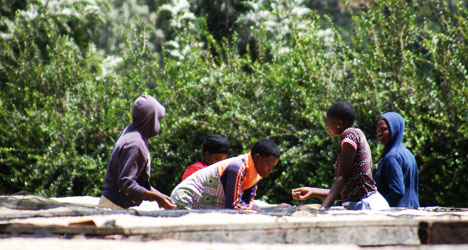
Alt 1650 to 1820 metres.
Varietals - Bourbon,SL28,SL34,TACRI,Kent
Size: 250 Ha
Alt 1600 to 1780 metres.
Varietals - Bourbon,SL28,SL34,TACRI,Kent
Size: 200 Ha
Alt 1600 to 1780 metres.
Varietals - Bourbon,SL28,SL34,TACRI,Kent
Size: 72 Ha